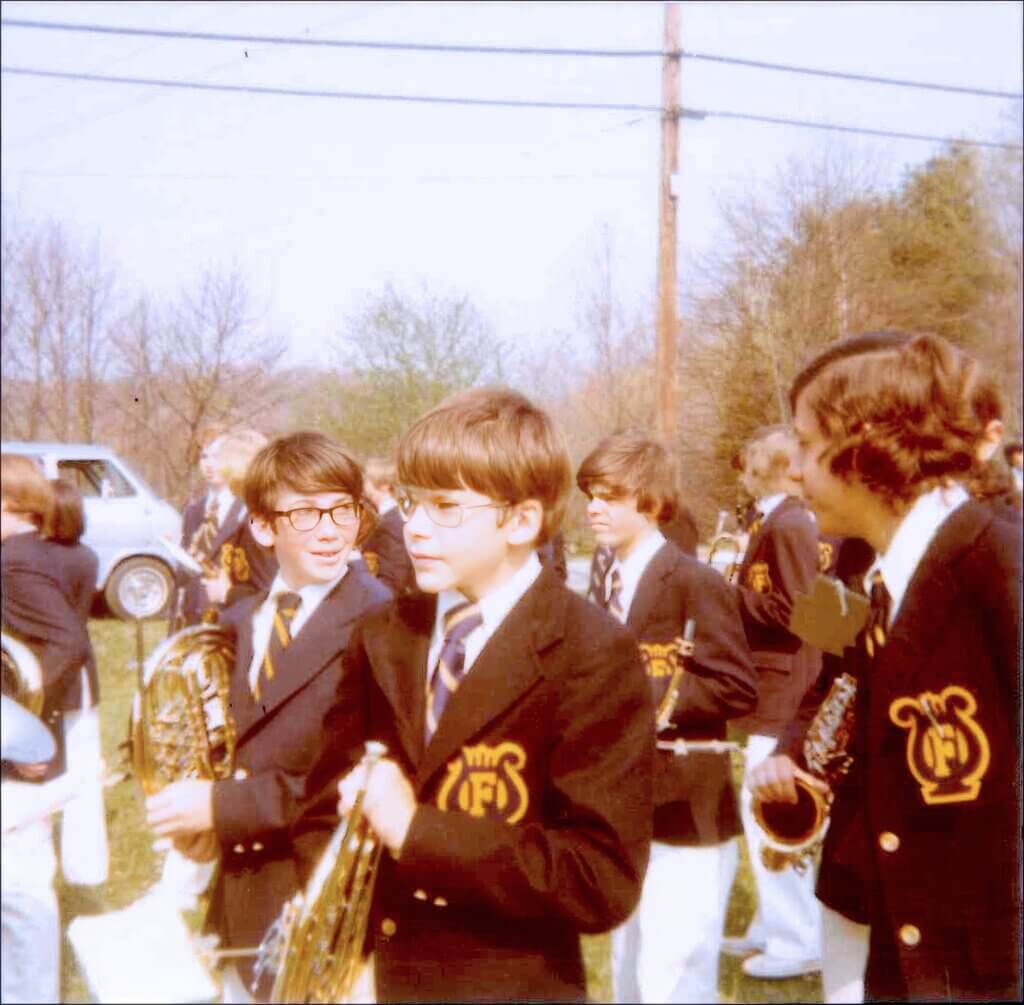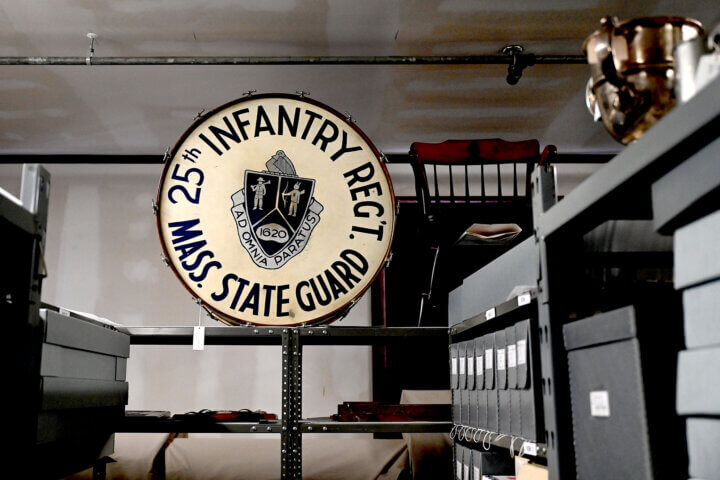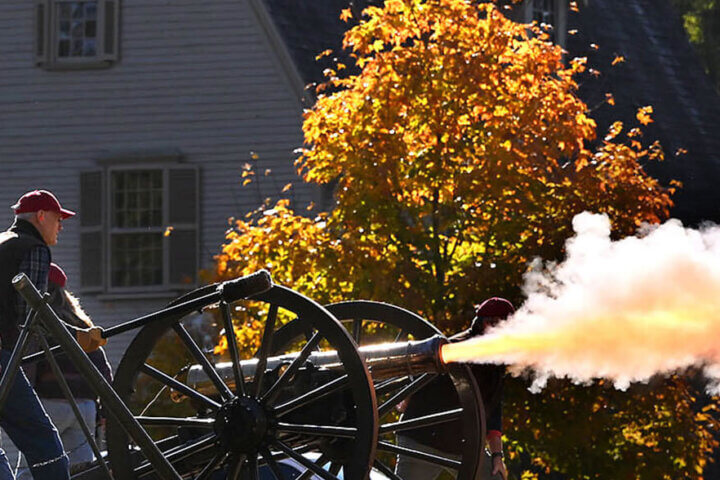By Anne O’Connor
In 1975, Concord found itself center stage in celebrating the 200th anniversary of the beginning of the American Revolution, Patriots Day. The displays and influx of visitors affected everyone in town.
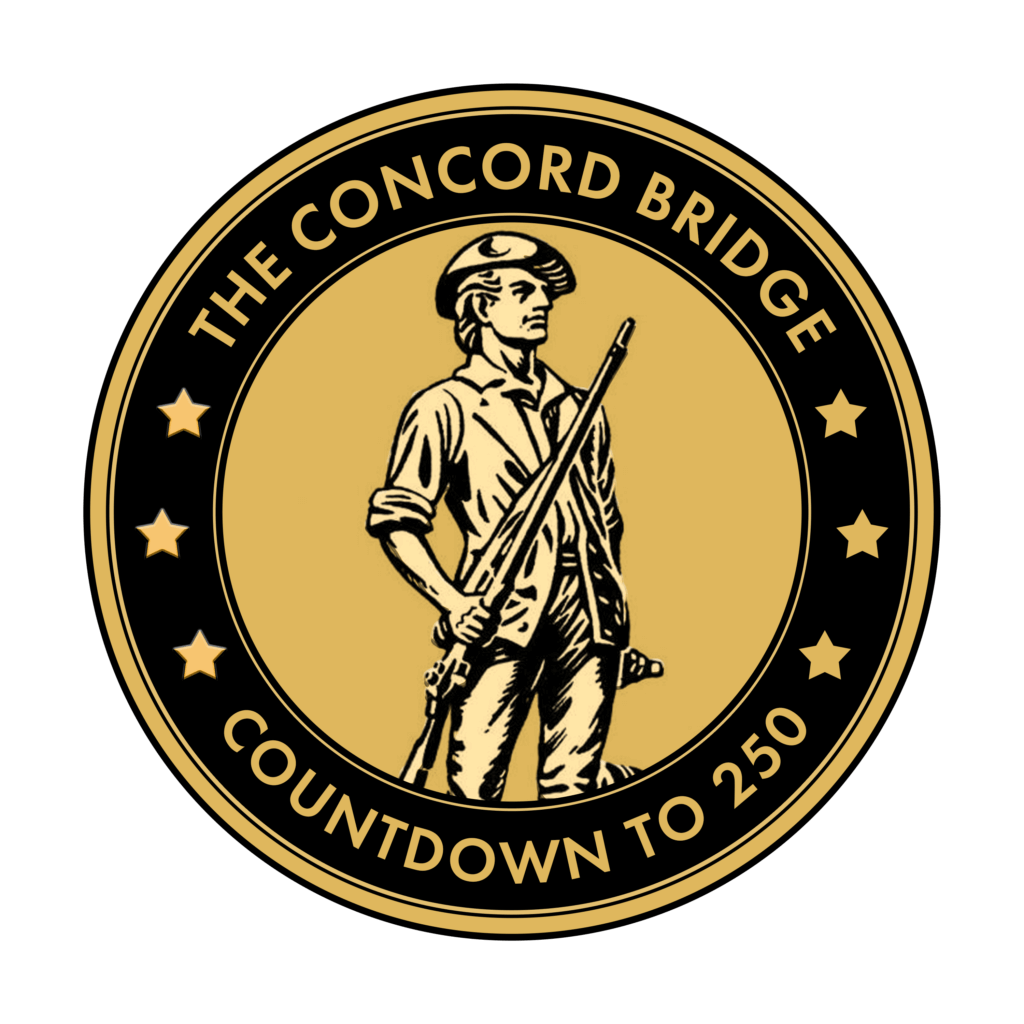
The Concord Bridge spoke to several people who were in town that day.
Rick Loughlin was a recently returned Vietnam veteran and college graduate. He, along with his father Richard Sr., a World War II Navy veteran, were the marshals for the first division of the parade that had more than 6,000 participants altogether.
April 19 was cold and raw after a night of rain.
“Everything went according to plan,” he said. Staging areas were set up at the Alcott School and the high school. “Tons” of people were lined up along the parade route.
Today, 50 years later, Loughlin is on the 250th Executive Committee and is the chair of the Finance Subcommittee. “It should be a great celebration. Concord is at the heart of democracy,” he said.
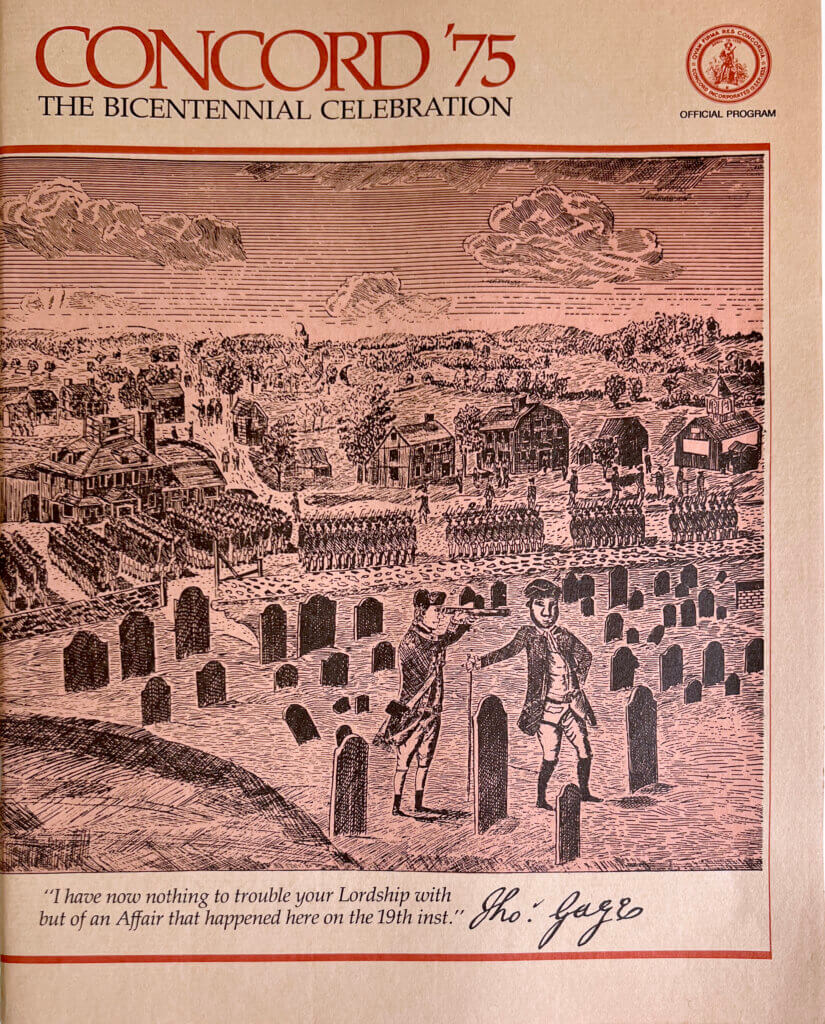
Joe Lenox, a school department employee and call firefighter in 1975, saw a different part of the celebrations.
The Fire Department requested coverage from other towns, an unusual thing in those days. Full-time firefighters were required to live in town and the on-call personnel were always nearby. In an emergency, response was fast.
With closed roads and the expected hordes of visitors, during an emergency, equipment would not be able to get through town. The department staged equipment in outlying areas for the day.
Tough commute
Lenox was supposed to report to the station at 6 a.m. and then spend his day at the corner of Adin Drive and Fairhaven Road where equipment from Concord, Lowell, Westford, and Armstrong Ambulance was staged.
That didn’t happen. He couldn’t get there from his home at Walden Pond where his father was superintendent. Instead, he went directly to his duty station.
“The town was basically locked down … You couldn’t even move. It was insane,” he said.
He and his future wife went to the ball at the Armory. The building and tent on Emerson Playground were jammed with 2,000 or 3,000 people, he estimated.
Bad weather did not slow things down. After the ball, folks went to the center of town to see the reenacted arrival of Samuel Prescott riding in from Arlington with news that British troops were on the move.
As a firefighter, he was aware of some of the public safety aspects of the event. A boisterous crowd of Vietnam War protesters camped on National Park Service land on one side of the Old North Bridge.
The ambulance went out many times to transport campers with alcohol poisoning or drug overdoses to Emerson Hospital.
One downtown retailer was caught selling beer from the back door despite a ban.
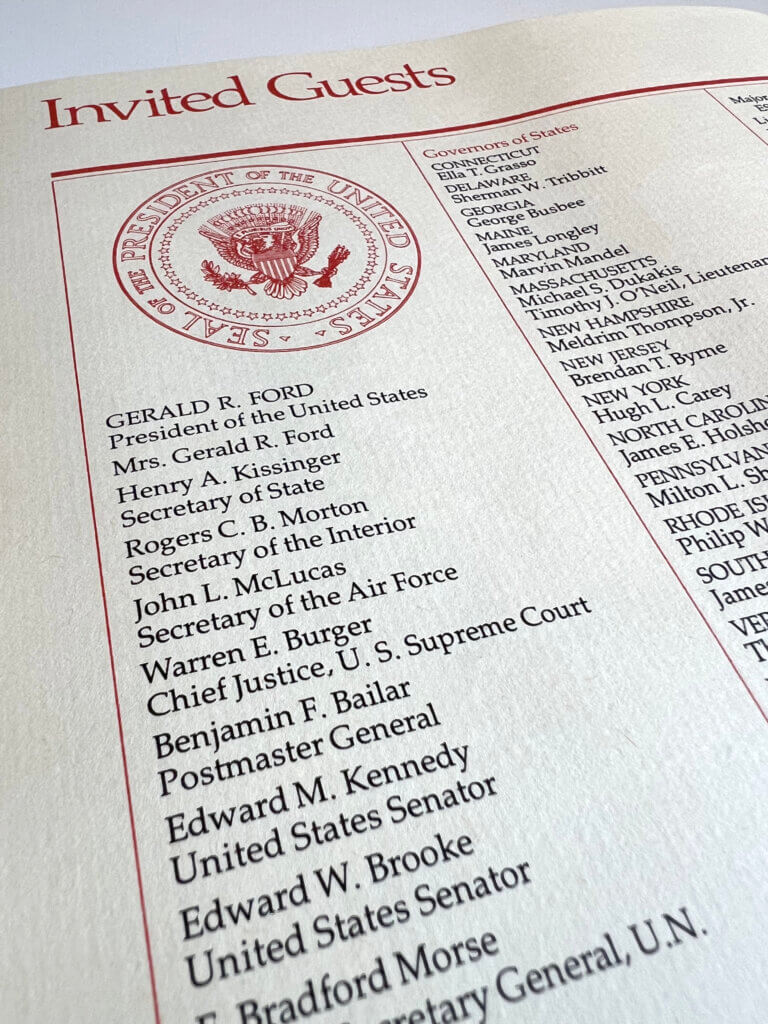
A time to sow
Ginger Lang lived with her husband John and children near the center of town. The couple went to the Patriots Ball the evening of April 18 and didn’t get much sleep after. Their friends arrived early in the morning, before the streets closed down, to park in the yard.
Ginger went down to the parade, but John, who said he’d played in enough marching bands, stayed home to plant peas.
Tish Hopkins was only five in 1975 but remembers her mother Helen thought the bands would be too loud for Mary, only one month old.
After taking the baby to the McHugh’s house in Maynard for the day, Tish and her mother were able to get into town. Her father Donald worked for the light department and they were able to watch the parade from the town barn.
“I think most of the town crews were working or at least on call that day,” she wrote in an email.
Presidents and protests
Henry Dane’s two boys, Michael and Abe, went to Fenn School. They played trumpet and French horn in the band that greeted President Gerald Ford when he arrived by helicopter on the school’s playing field.
Students from Lawrence Academy, including this reporter, were at the Old North Bridge when Ford arrived. Secret Service agents prowled the area, but kids were still allowed to climb trees to get a good view of the festivities and the gaudy boats in the Concord River.

The onlookers applauded politely for the president while the Vietnam War protesters on the other side of the bridge jeered and booed.
According to a Boston 7 news live broadcast, one protestor was arrested for making an obscene gesture.
On April 30, 1975, less than two weeks after the Bicentennial celebration, South Vietnam surrendered after Saigon fell to the North Vietnamese. American troops and other supporters were evacuated, ending U.S. involvement in the war.


